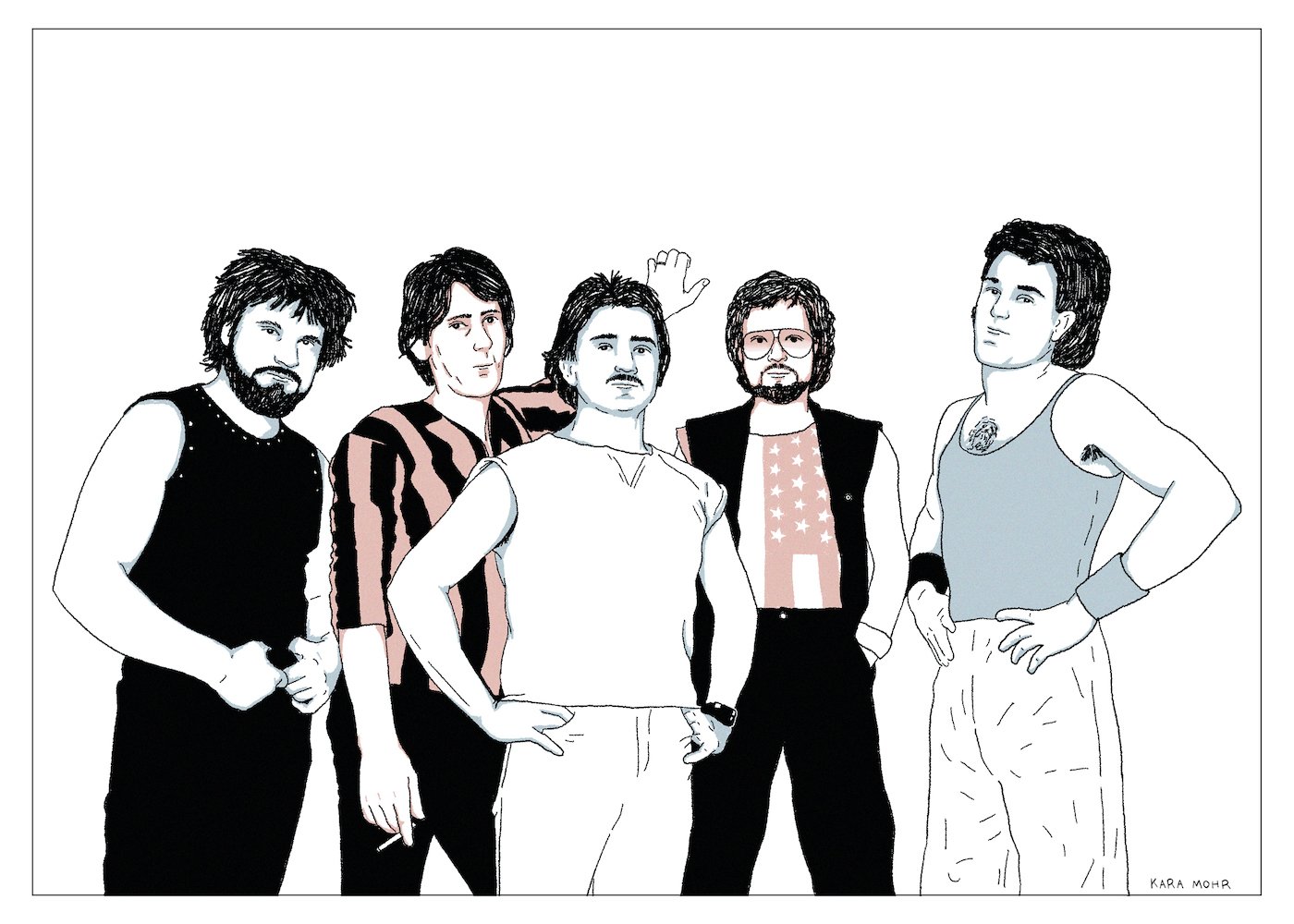
Blue Öyster Cult “Imaginos”
“Imaginos” is not really a Blue Öyster Cult album. Yes — it features the same five men who played on their beloved Seventies albums. But no — those five men did not write, play or record the album together. The name “Blue Öyster Cult” appears in name only, as a last ditch effort to see if the parties involved could recoup any of the significant cost sunk by their former drummer, Albert Bouchard. And yet, in a strange way, “Imaginos” is also the most Blue Öyster Cult album in that it was born from the band’s source material. While frequently indecipherable, “Imaginos” is oddly important in that its concept not only predated Blue Öyster Cult, but actually invented Blue Öyster Cult.
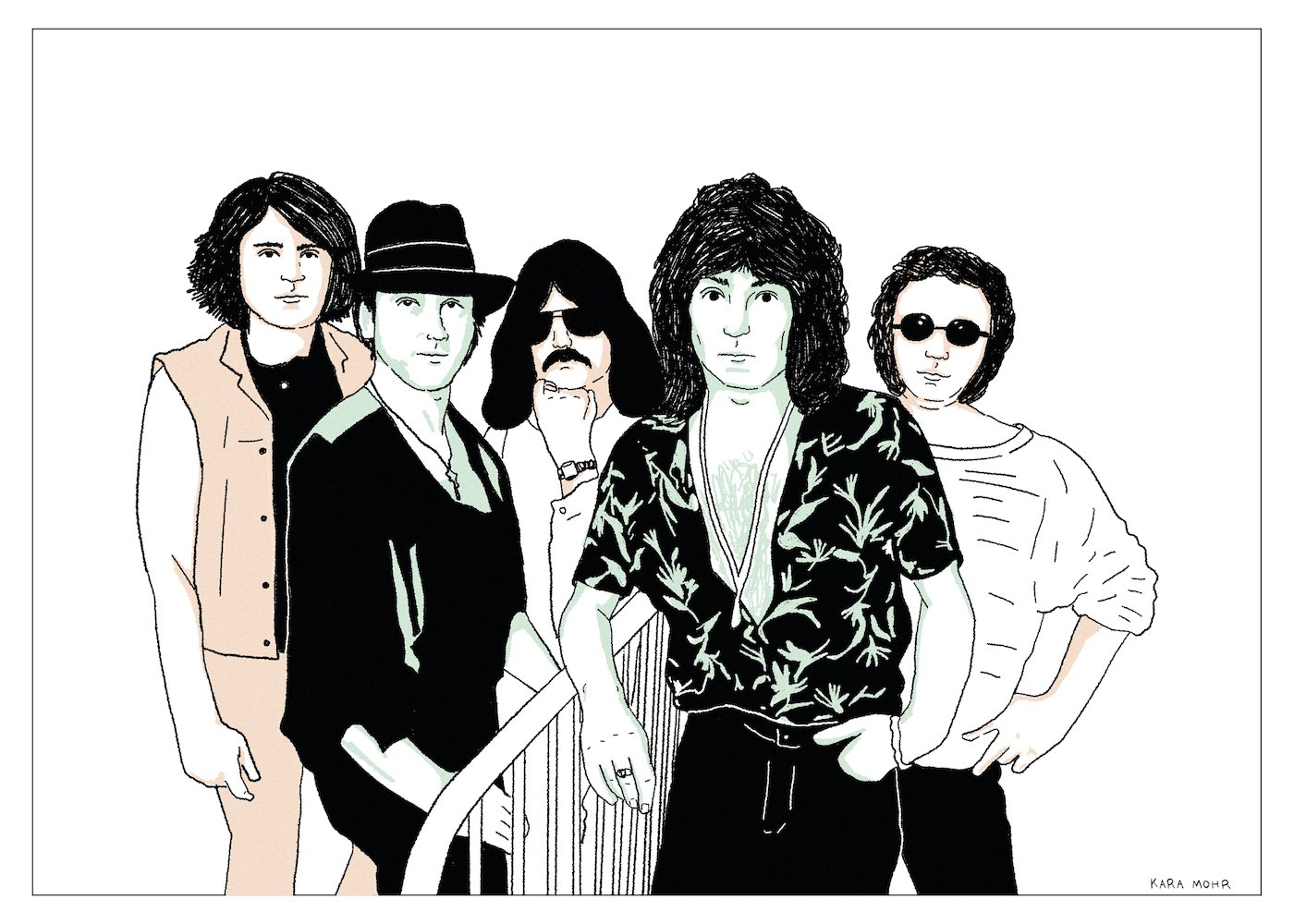
Deep Purple “The House of Blue Light”
In “This is Spinal Tap,” documentarian Marty Di Bergi reminds the band that their 1980 album “Shark Sandwich” had once famously received a review which read simply: “Shit Sandwich.” But in (cinematic) fact Spinal Tap were always loathed by the critics and “Shark Sandwich,” which featured “Sex Farm” and “No Place Like Nowhere,” was actually something of a return to form. Like “Shark Sandwich,” Deep Purple’s “Perfect Strangers” did not fare well with the mainstream press. In 1985, Rolling Stone printed a two star review that read like a one star review. Nevertheless, and like Spinal Tap’s late career hit, “Perfect Strangers” thrived commercially. But, if “Perfect Strangers” was Deep Purple’s “Shark Sandwich,” it follows that “The House of Blue Light” was their “Smell the Glove,” an ill-fated document of disunion that revealed a band spiraling into mid-life crisis.
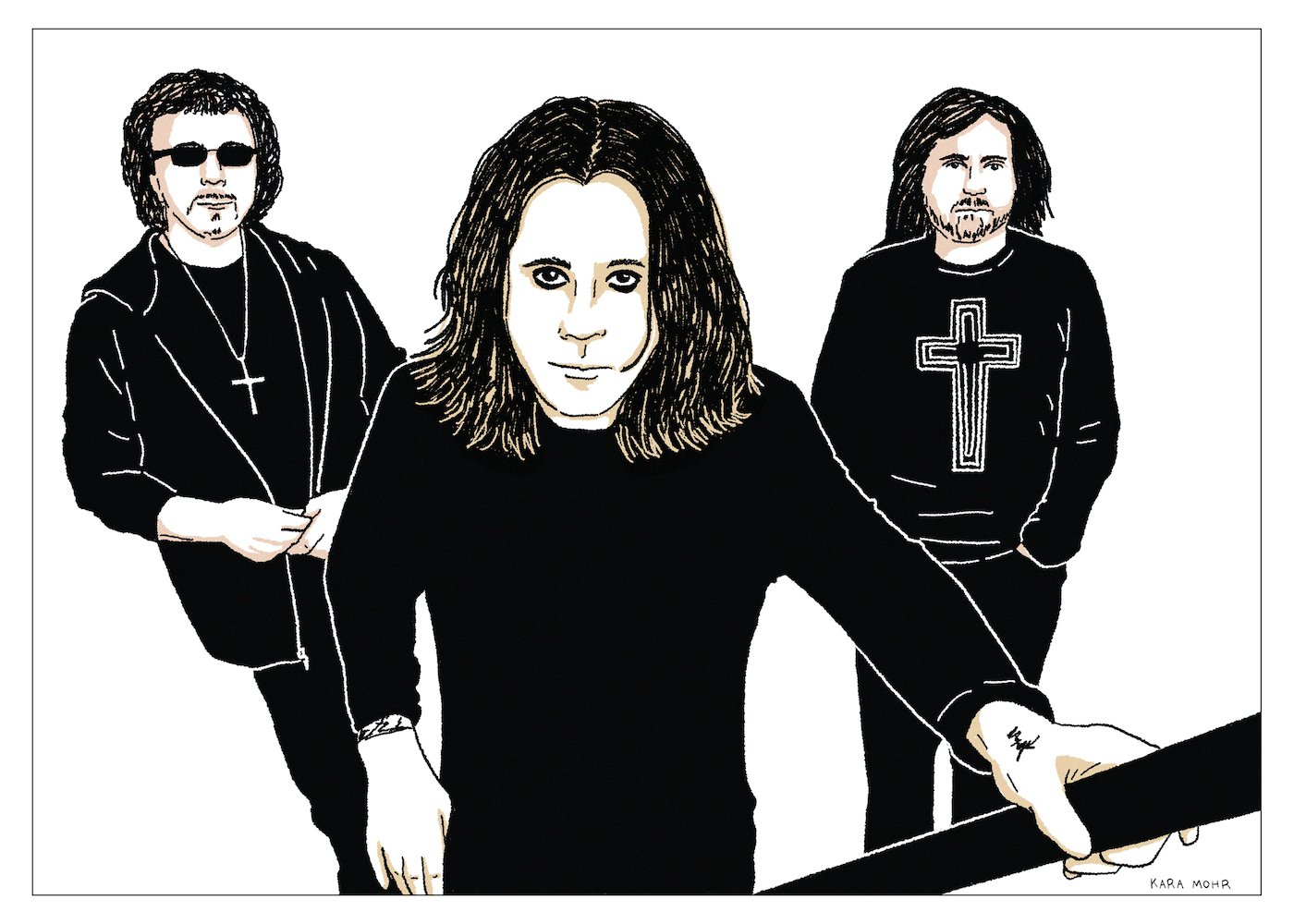
Black Sabbath “13”
Once upon a time, Black Sabbath were considered musical troglodytes — dumb, artless wankers, shunned by the cultural cognoscenti. Years later, even after many fans and some critics came around, they were still treated like drunk, possibly murderous threats. It was not until recently, long after Ozzy left, after Ronnie left, after most of the world had reconsidered them, that Sabbath settled into the realm of quaint, rich celebrity. They came to signify the excess and darkness of Seventies Hard Rock and the eventual convalescence from said excess and darkness. By 2013, Ozzy Osbourne was unimaginably wealthy. He was a reality TV star. He was a doddering, comical old man. And yet, despite the passage of time, despite the reputational rehab and despite Ozzy’s defanging, “13” is not funny — not for a single moment.
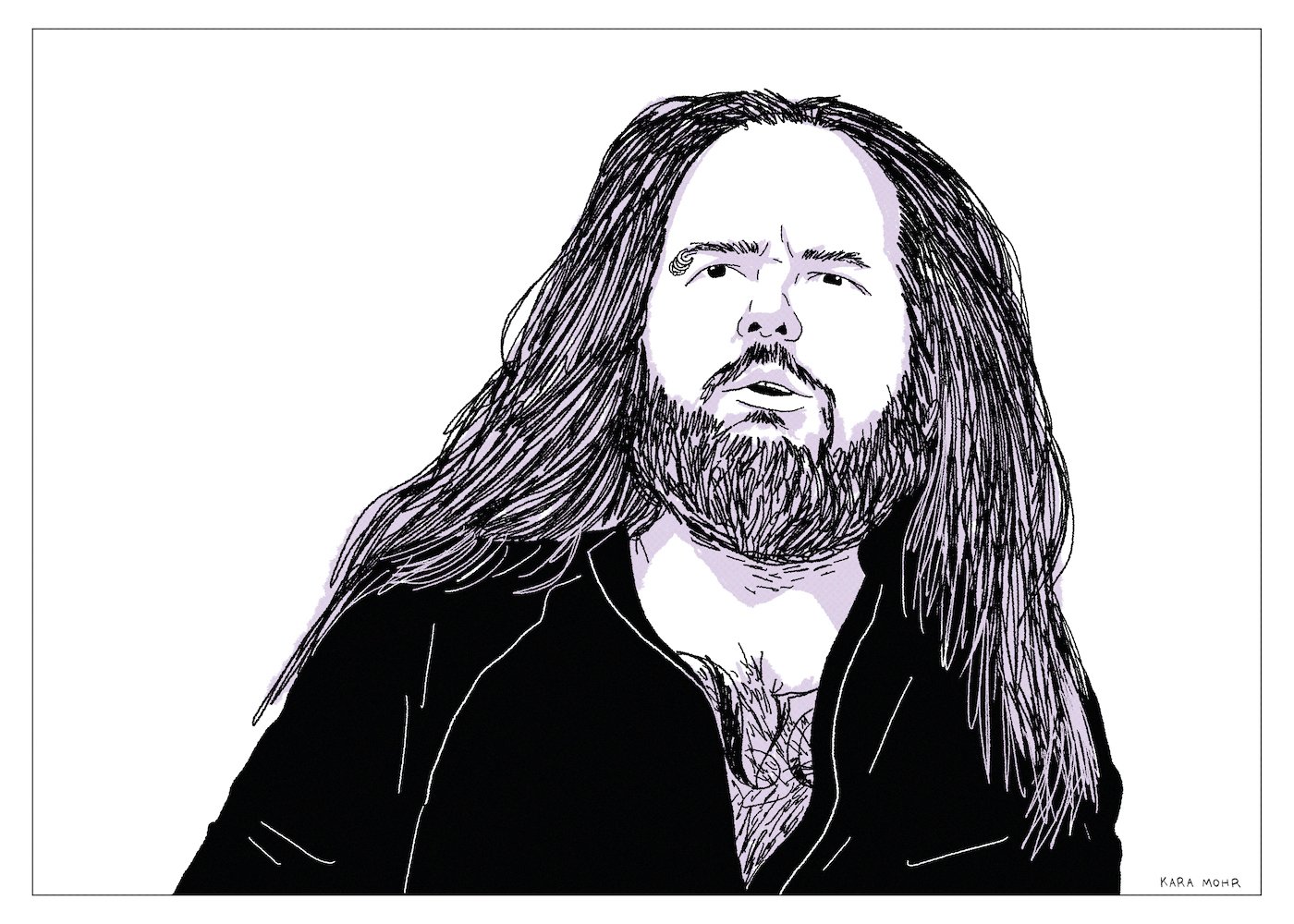
Jonathan Davis “Black Labyrinth”
The Jonathan Davis who released “Black Labyrinth” looked remarkably similar to the one who’d conquered the world on “Follow the Leader.” Same dreads. Same black glasses. Same eyebrow ring. Same scraggly beard. But in 2018 the almost forty-seven year old was an elder statesman, reclaimed by multiple generations as a pioneer and a survivor. On the surface, he was the exact same guy he’d always been. But inside he was a completely different man. And according to the press that accompanied his solo debut, Davis was the completely different sort of man who was interested in the history, politics and music of the Middle East. Which meant that “Black Labyrinth” necessarily included sitar, duduk, tablas and (double) violin. Which meant that I was more than a little reluctant to check it out. Which meant that—just as I’d done a quarter century earlier—I was steeling myself to dislike something I’d not yet heard.
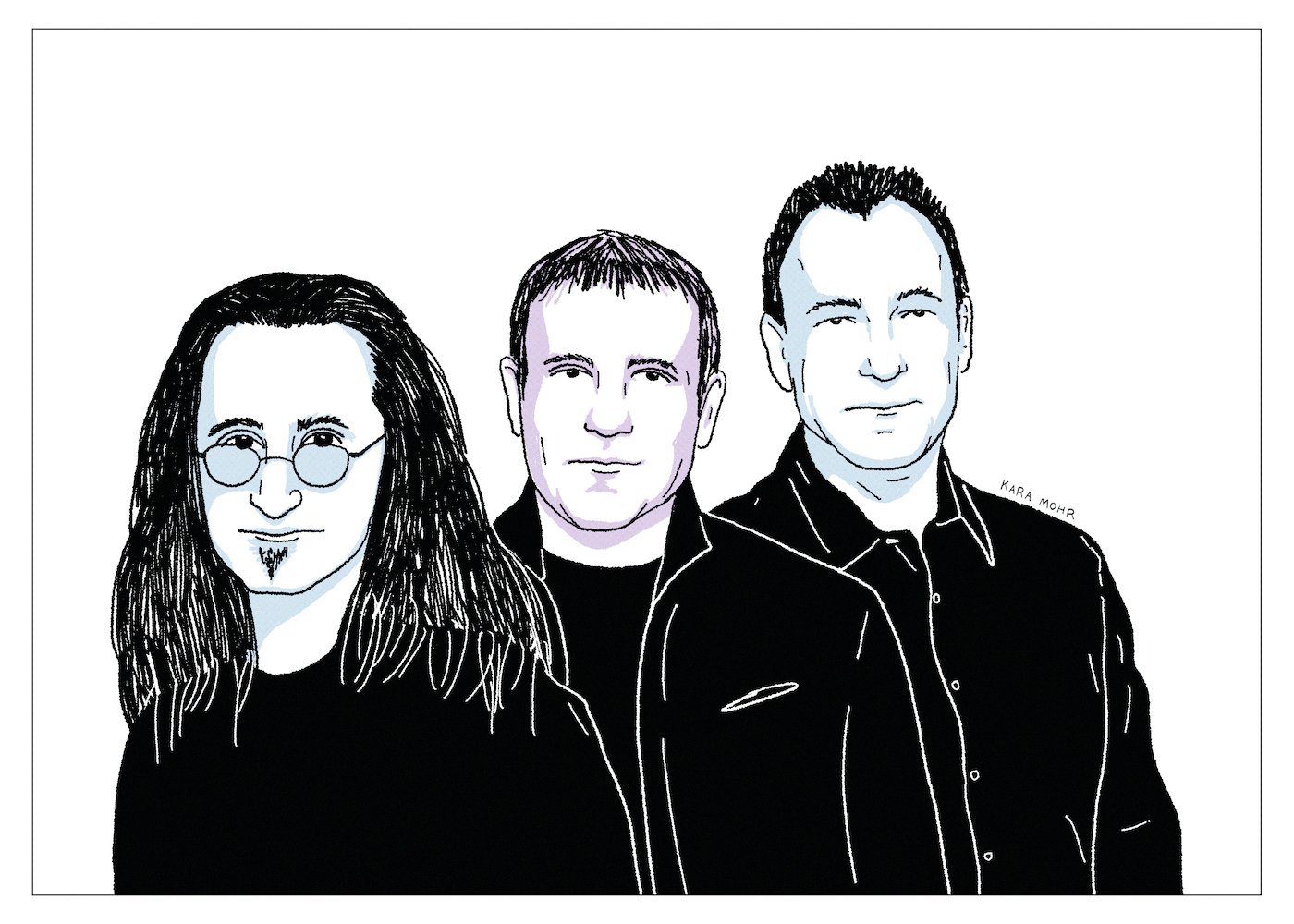
Rush “Vapor Trails”
By the time I reached middle age, my longstanding, polite refusal of Rush had settled into a wizened indifference. In fact, since I was not a subscriber to Guitar World or Drummerworld magazines, many years would go by without me hearing a peep about the band I’d once tagged “Loser Van Halen.” But then, one day, I caught wind of “Rush: Beyond the Lighted Stage,” a documentary that was generating buzz on the festival circuit. That buzz swelled, culminating in awards, which begot a short theatrical run, which is where, in the summer of 2010, I was confronted with the most unfathomable of questions: What if the band I liked the least was the one I loved the most?
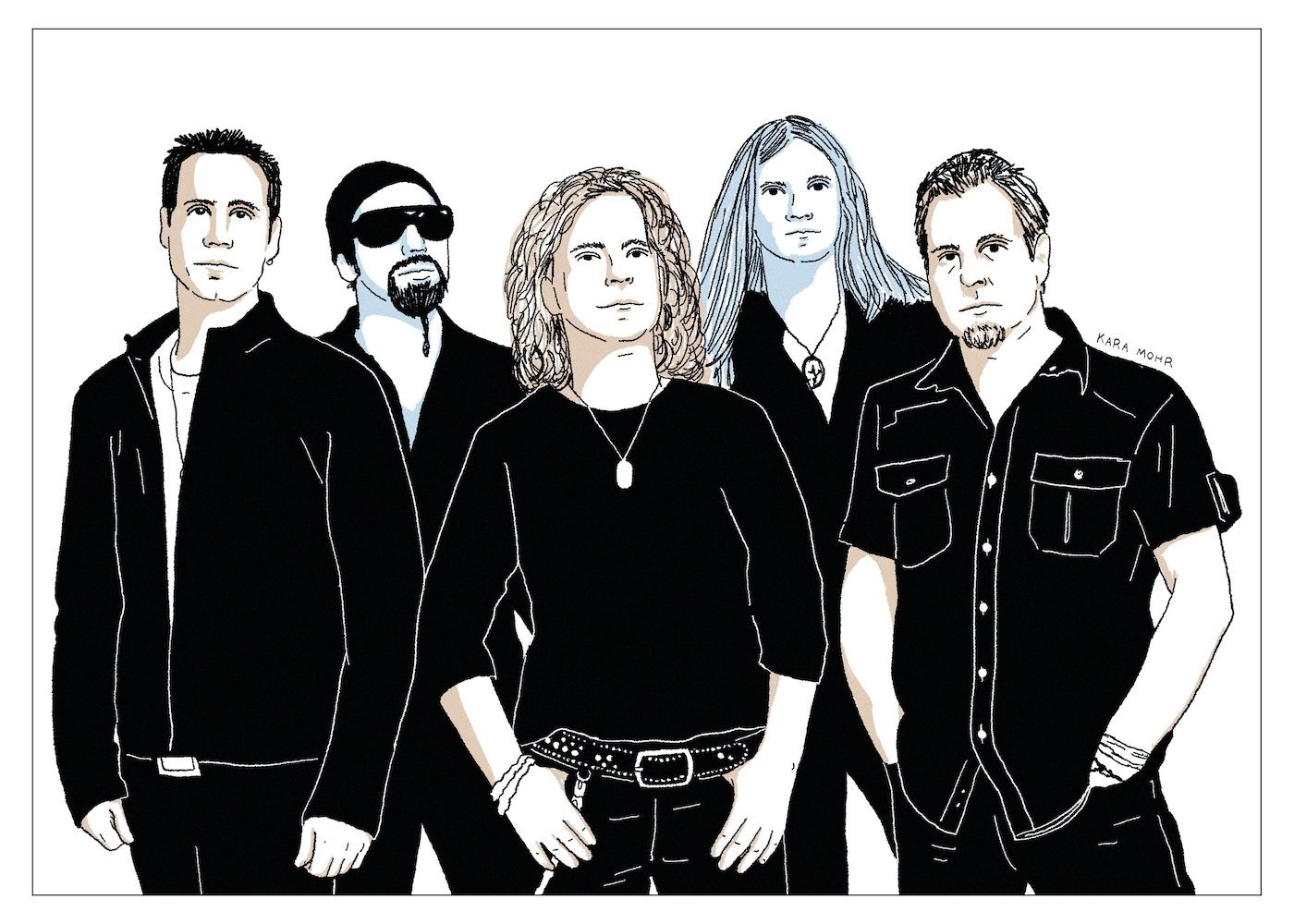
Night Ranger “Somewhere in California”
What happens to our dreams in middle age? Do they still matter? Were they silly to begin with? These are the questions we wrestle with on the other side of forty. And, as much as Night Ranger were an Eighties Rock band, they were also a middle-aged Rock band. Strictly speaking, they were more the latter than the former. While they released five albums during their heyday, they — amazingly — have put out eight albums since. Their most recent album, from 2021, was “A.T.B.O.,” an acronym for “And The Band Played On.” Its predecessor, from 2017, was entitled “Don’t Let Up.” The evidence suggested that Night Ranger wasn’t simply “hanging on.” That they were not content being “the Sister Christian guys.” That there was a destiny yet to be fulfilled.
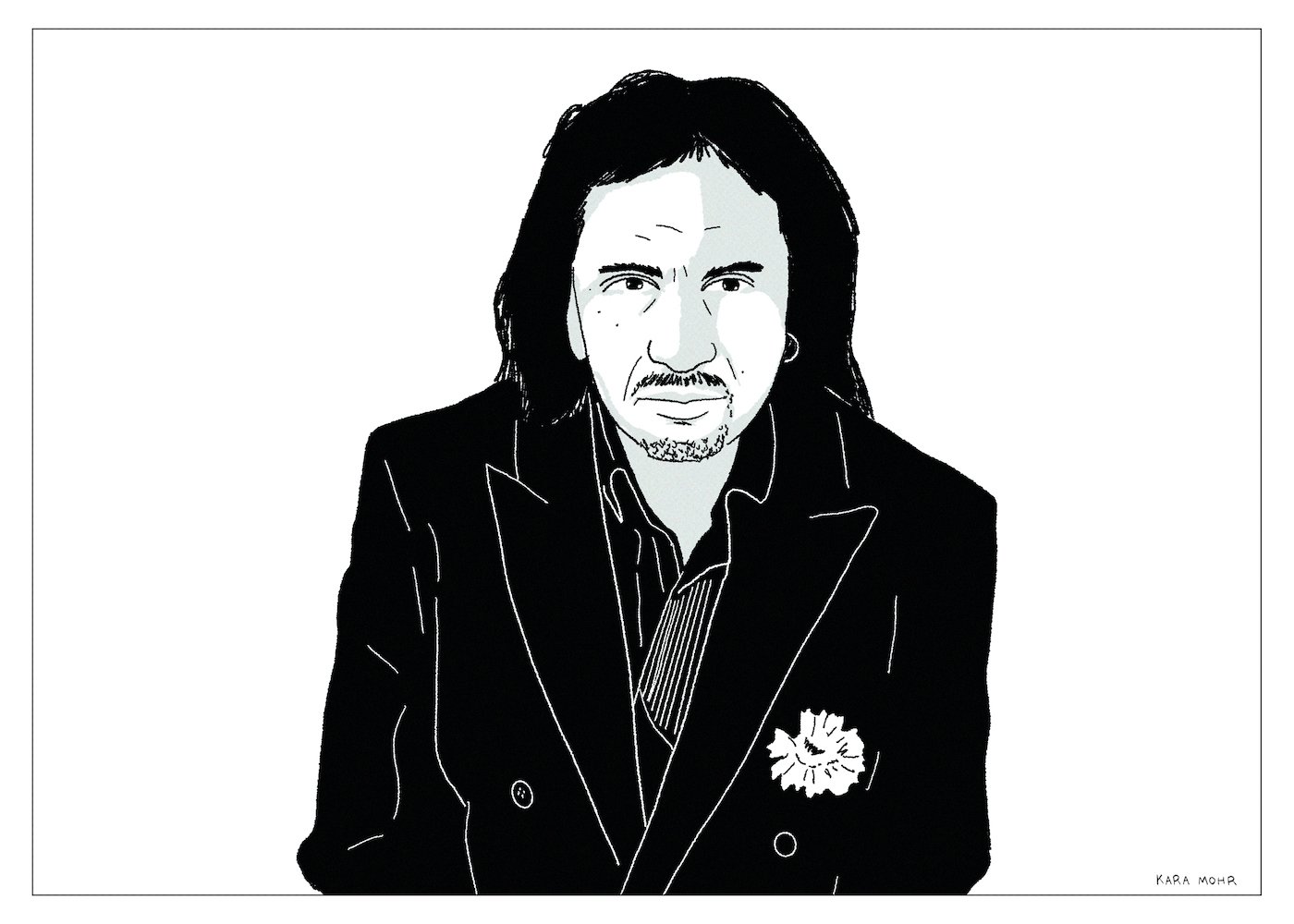
Gene Simmons “Asshole”
Since “Psycho Circus” — twenty-five years ago and counting — KISS has released exactly two studio albums. During that time, Gene Simmons has been a licensor of merchandise, a part time record label owner, a television and film producer, an occasional actor and, of course, a reality TV star. On the one hand, he’s become a guy who cable news calls in for a provocative quote and a funny face — a post-middle-aged braggart in shades who used to wear makeup in “that band.” On the other hand, he is still the same exact guy who’d gotten famous in 1975 — a joker, a demon, a ladies man, a womanizer, a capitalist. But, as it always does, the zeitgeist moved on. It’s no longer 1975, or 1984 for that matter. And so what seemed more charming back then appears less so decades later. We had different names for guys like him back then. But, by 2004, it was all a lot clearer. Gene Simmons was an asshole. And apparently Gene Simmons did not disagree.
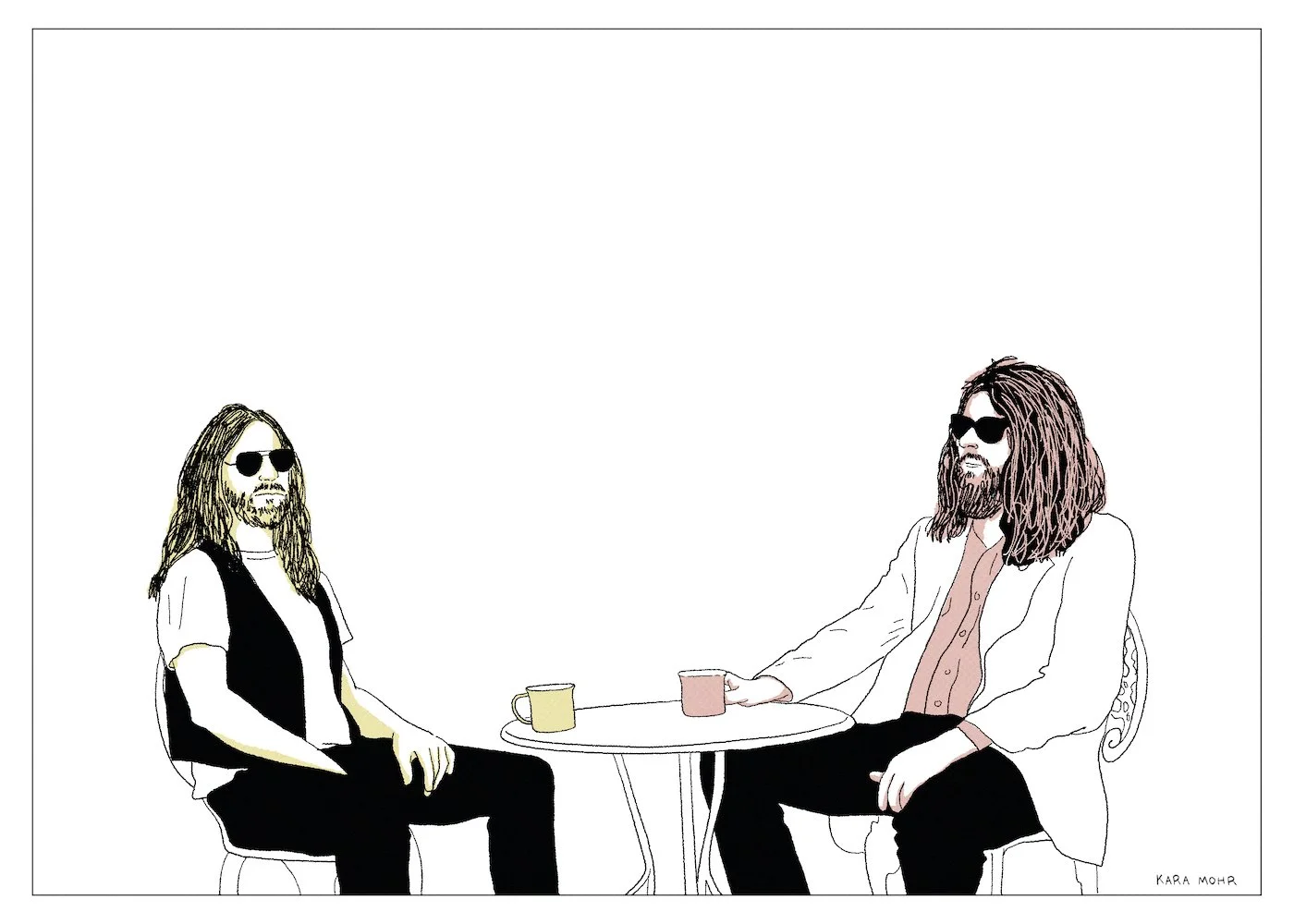
Black Mountain “IV”
Ten years, three studio albums and a half dozen side projects after their Pitchfork-feted debut, Black Mountain returned with “IV.” From its Hipgnosis-inspired cover, which screams Floyd and Hawkwind, to its bank of synthesizers, borrowed from Rick Wakeman and Keith Emerson, “IV” is a total flex. It’s an epic album, daring and ridiculous enough to take its name from one of the most famous albums in the history of Rock and Roll. Black Mountain’s “IV” is obviously not Led Zeppelin’s “IV.” In fact, it’s their least bluesy, least metal, most spacey and most proggy album. A more accurate title might actually be “Light Side of the Moon.” The titanic riffs are still very much there, but they are not the thing. The synthesizers are sometimes the thing, but also not the thing. The thing that distinguishes “IV” from straight homage is the thing that has always separated Black Mountain from everyone else — the sound of Amber Webber’s voice paired with Stephen McBean’s. The sound of verdant soil and deep roots next to burnt twigs and leaves.
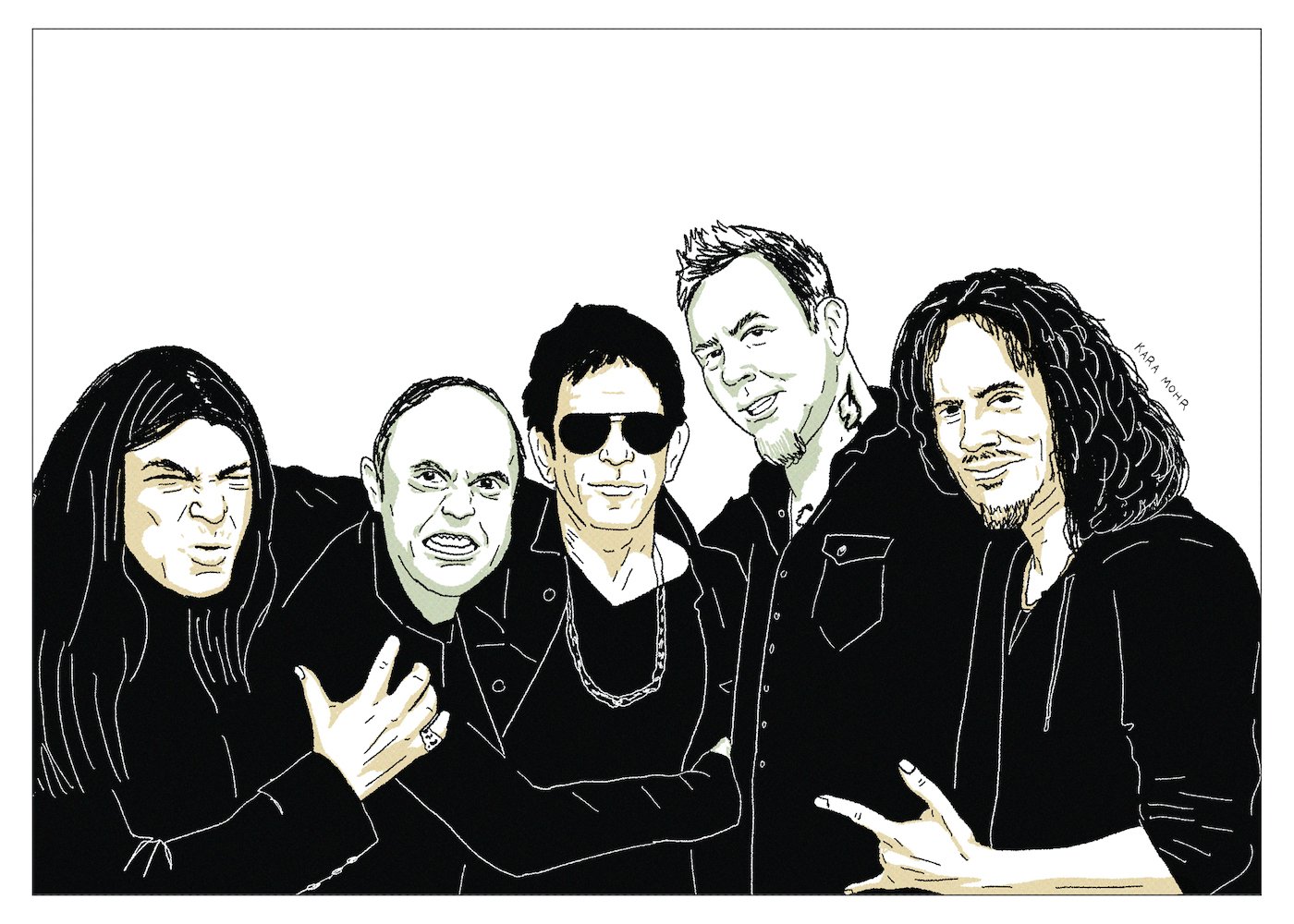
Lou Reed and Metallica “Lulu”
Given how few people have actually heard the album, and how few of those people are interested in anything beyond the stars involved, the volume of “Lulu studies” is staggering. But the divergence of the various theses is so bold as to suggest that either (a) people are listening to different albums or (b) nobody knows anything. There is, of course, overlap in the various perspectives — but less than I would have assumed. Many simply believe that “Lulu” is a historic failure — a bloated pretentious hour and a half of noise and nonsense. There are others who view it as an act of artistic bravery from two legendary artists, committed to a vision and unconcerned with failure. And, finally, there are those who believe that “Lulu” is misunderstood. Nowhere among the three points of view, however, can you find a faction who boldly proclaims: “Lulu is awesome.”
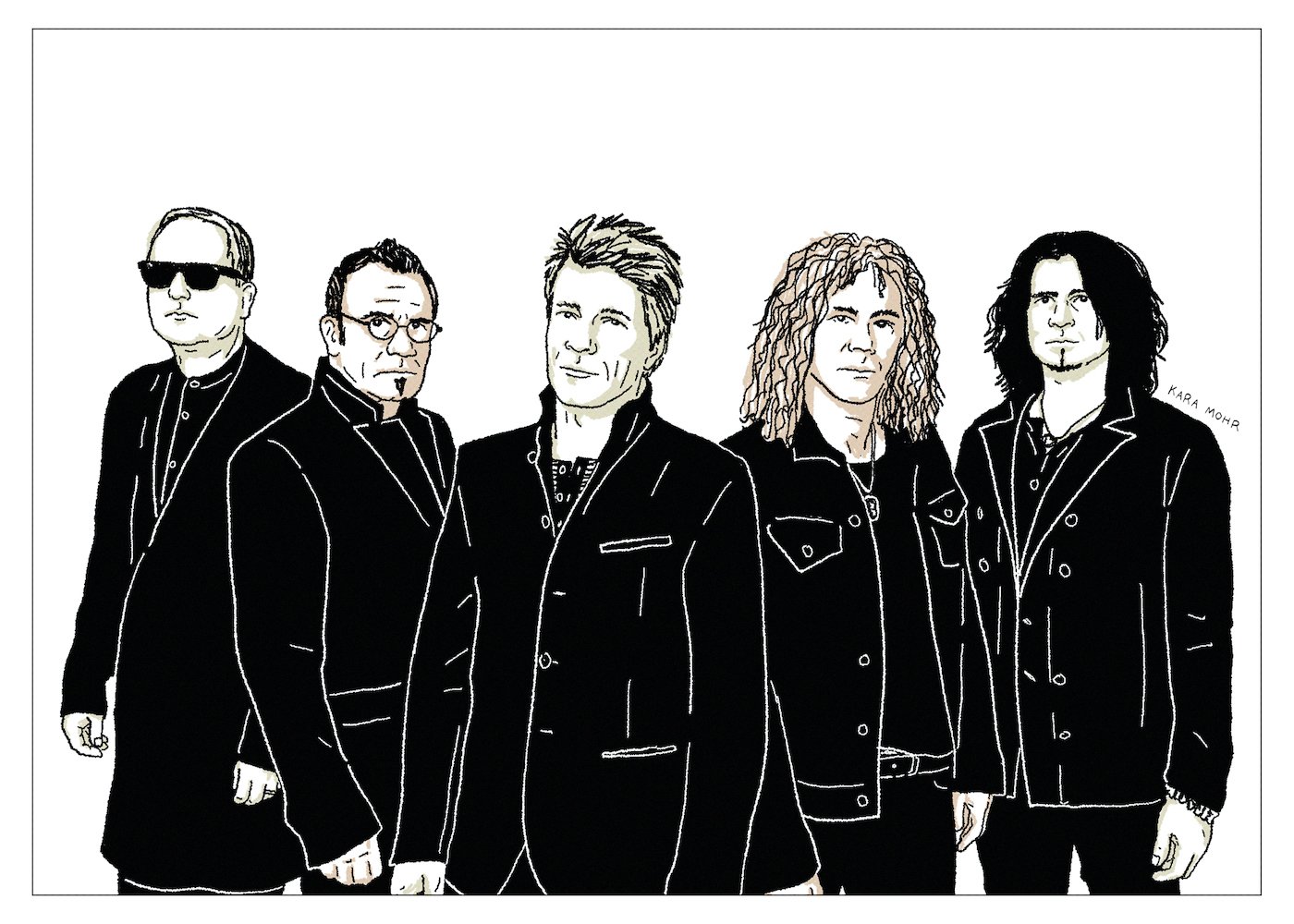
Bon Jovi “This House Is Not for Sale”
Though they were no longer America’s Biggest Rock Band, Bon Jovi could still sell (many) millions of albums. But it was clear to anyone who was paying attention that things had changed. Jon cut his hair and took up acting. Richie married Heather Locklear. Over the course of three decades, they’d traded in grit for nostalgia. Their fearlessness was subsumed by trite optimism. And though they’d sustained their spot on the charts, they’d regressed from something iconic to something more generic. By 2015, they had to confront the existential risk that all Arena Rock bands some day face: the challenge of being both universal and distinct. Many great bands had fallen into that chasm before: Journey, Foreigner and REO Speedwagon to name a few. But, not Bon Jovi. In just a few years, and without Richie Sambora, they went beyond arenas. Beyond namelessness and facelessness. They became the Bud Light of Rock and Roll — the highly consumable, mostly bland complement to Fox Sunday football.
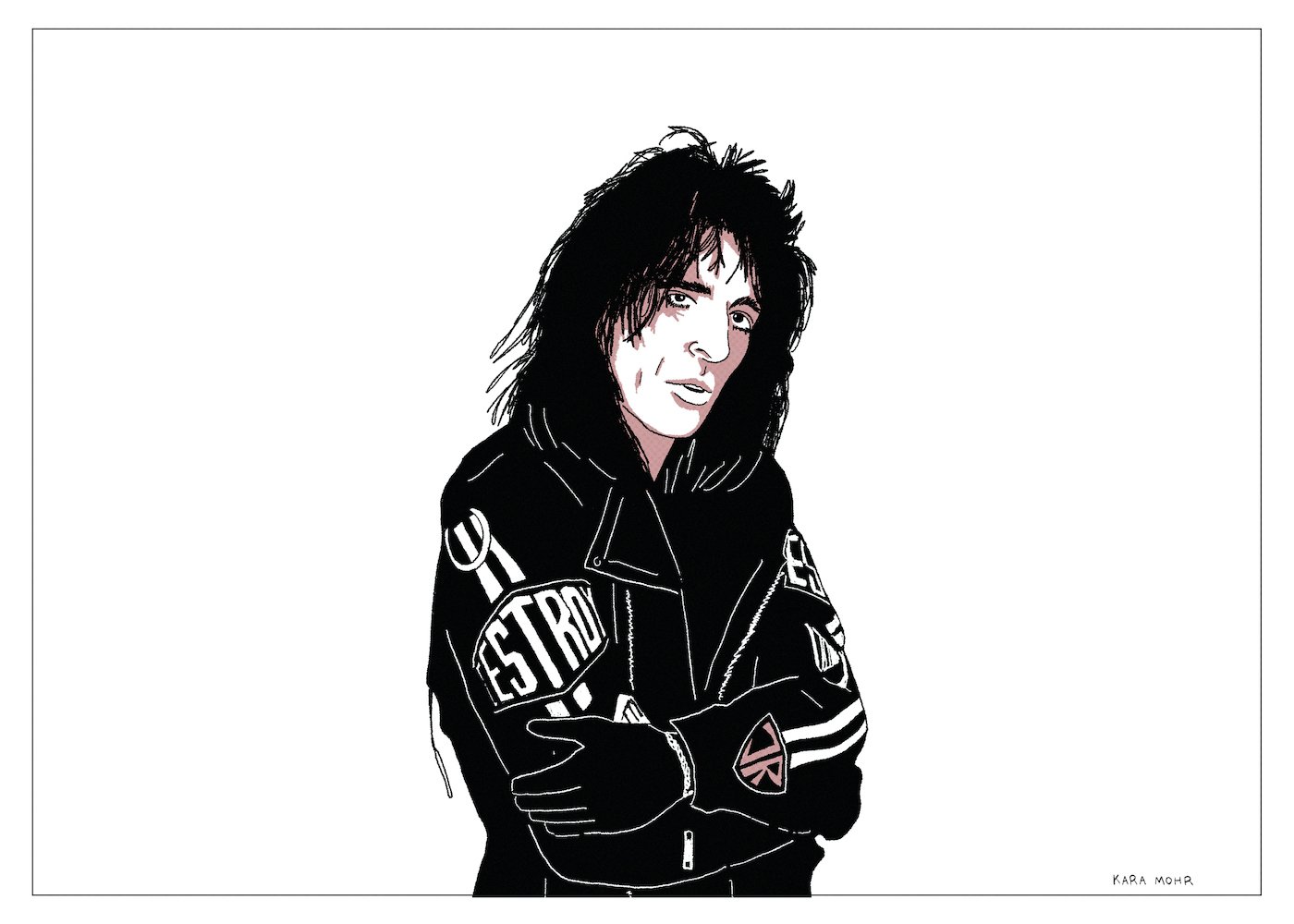
Alice Cooper “Trash”
The early 80s were not kind to Alice Cooper. Sober, but restless, he tried new gimmicks. He brought more snakes onstage. He tried his hand at New Wave. He traded booze for golf. But nothing seemed to work. By the mid-80s, while Hair Metal — a genre that he’d in part given birth to — was ascending, Alice Cooper was nothing more than a charming “has been.” But then, when it seemed that he was all past and no future, he caught a massive break. Desmond Child, a longtime fan and, more importantly, the super-producer of gargantuan, shout-along hits by KISS, Bon Jovi and Aerosmith, offered to help the forty year old, Shlock Rocker reclaim his throne. In order to succeed in the mission, Child had one requirements. He demanded that Cooper sing about the one thing that all teenagers are obsessed with but which the future GEICO spokesman had somehow avoided for his entire career: Sex.
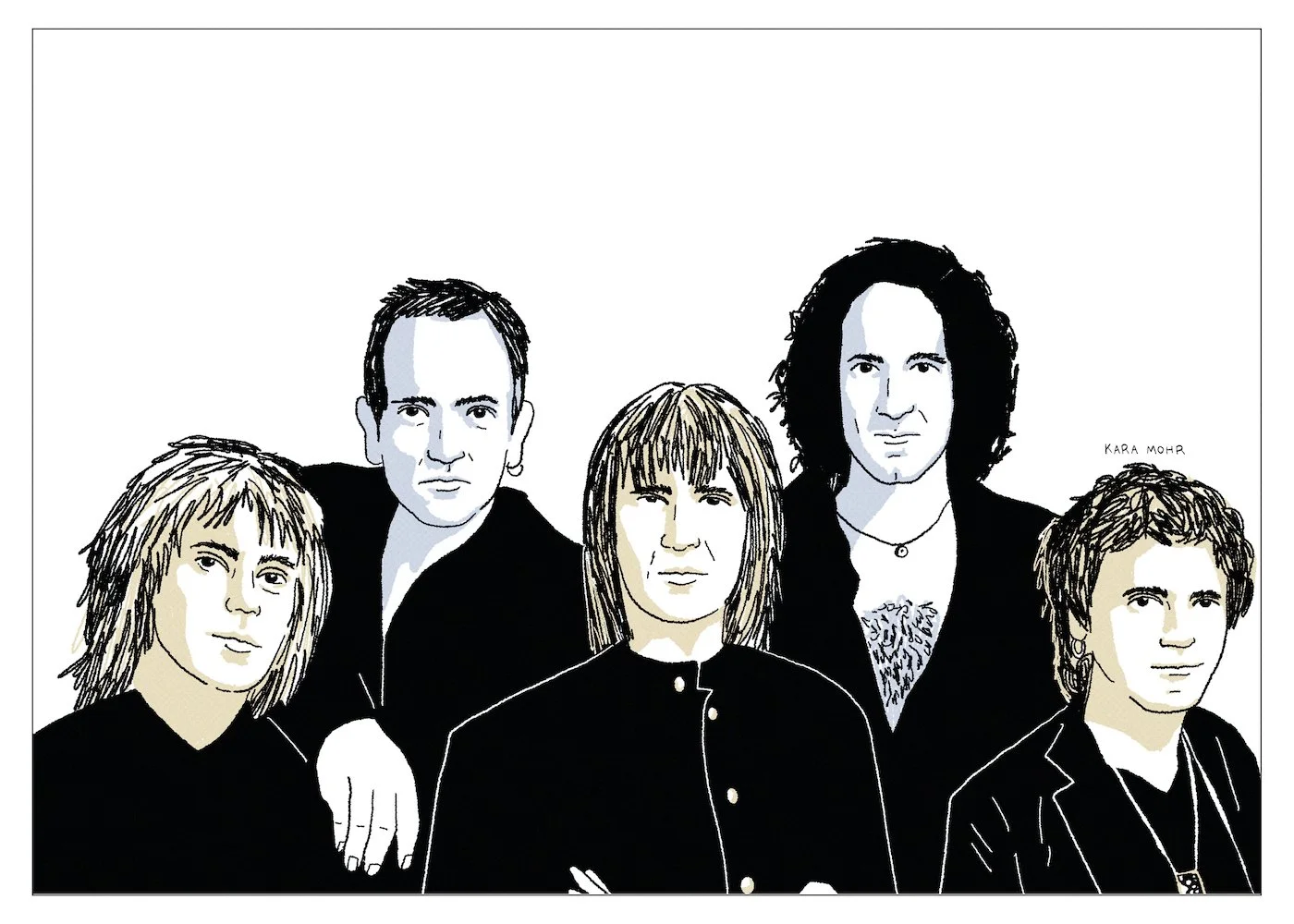
Def Leppard “X”
Def Leppard were once as American as apple pie. More than Bruce or Petty or Johnny Cougar, they were the soundtrack of the American Heartland. They were the grist for Rock radio, churning out pristine, semi-heavy, fully melodic singles, engineered by the future Mr. Shania Twain. With the arrival of Grunge and Alt, however, came the annihilation of Hair Metal. And though they did not precisely fit the genre, Def Leppard was a casualty of the 90s. On the brink of extinction, they tried everything to survive. They tried sounding like Stone Temple Pilots. They tried sounding like themselves. And then, finally, desperately, they tried the unthinkable. They hired wunderkinds Marti Frederiksen and Max Martin and made a bunch of tracks that resembled the third best songs from “American Idol,” if recorded by Bryan Adams for the Nordic market. On “X,” Def Leppard tried mightily to reclaim lost ground, but ultimately fell short of “popular” and landed awkwardly in the neighborhood of “pop.”
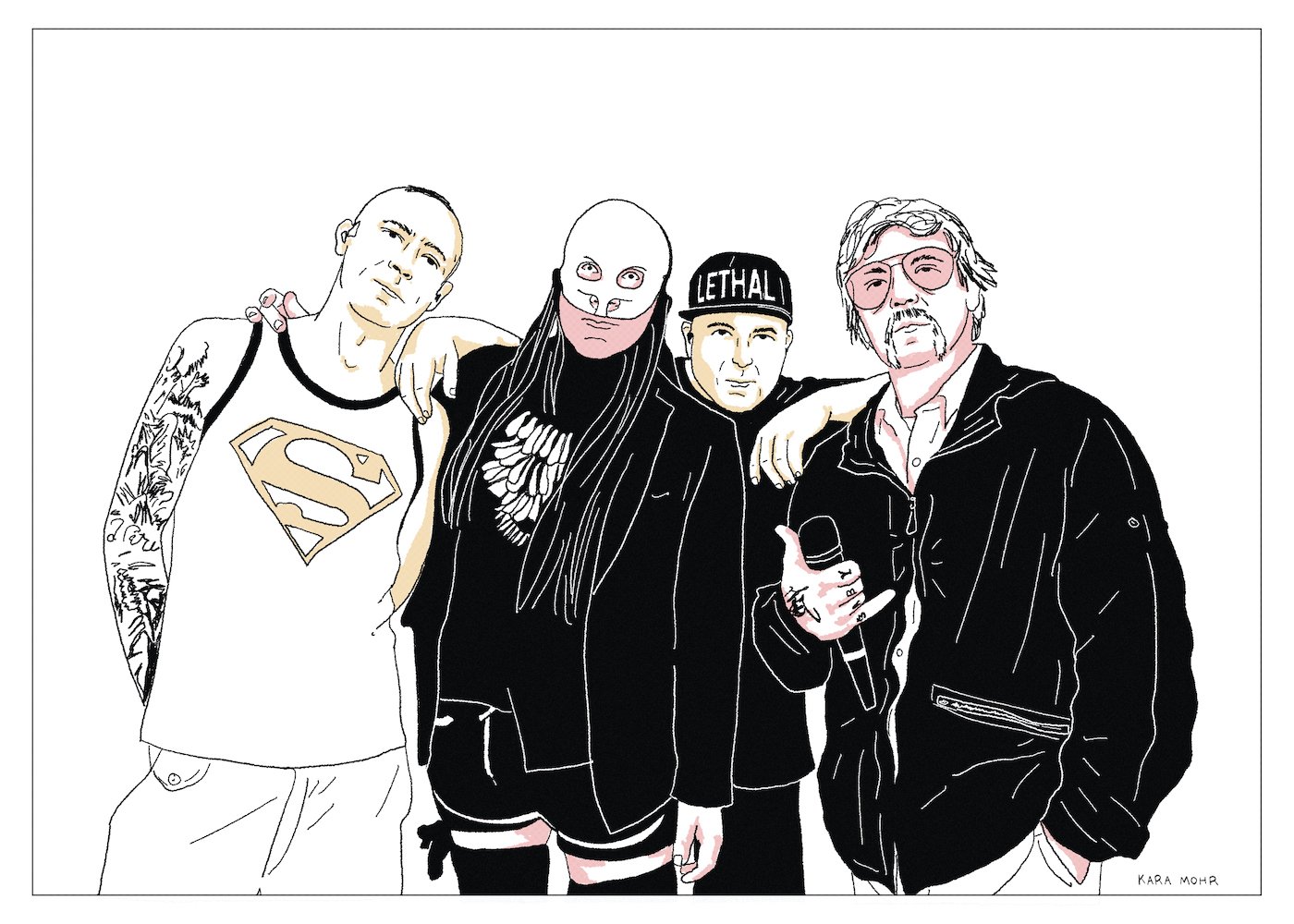
Limp Bizkit “Still Sucks”
There’s this rich, aging Floridian who’s prone to wearing red hats, saying horrible things about women, insisting that he’s a victim and flirting with Russia. Many Americans consider him to be a terrible, dangerous human. But to some, he remains unassailable -- almost godlike. His name, of course, is Fred Durst. The villainization of Durst is almost too easy. His name is basically synonymous with “douche.” And as popular as Limp Bizkit once was, they were more so reviled. To many, the band’s frontman has always been an under-talented, rage spewing bro. His litany of offenses is significant and the counter-argument is not terribly clear. Durst, however, has been consistent with his own defense: He is the lifelong victim of bullying and rejection. He’s horrified that his band’s music was co-opted by misogynists. He’s not the bad guy. He knows his band sucks. He’s in on the jokes. If anything, the joke is on us -- his critics. In fact, we are the bullies.
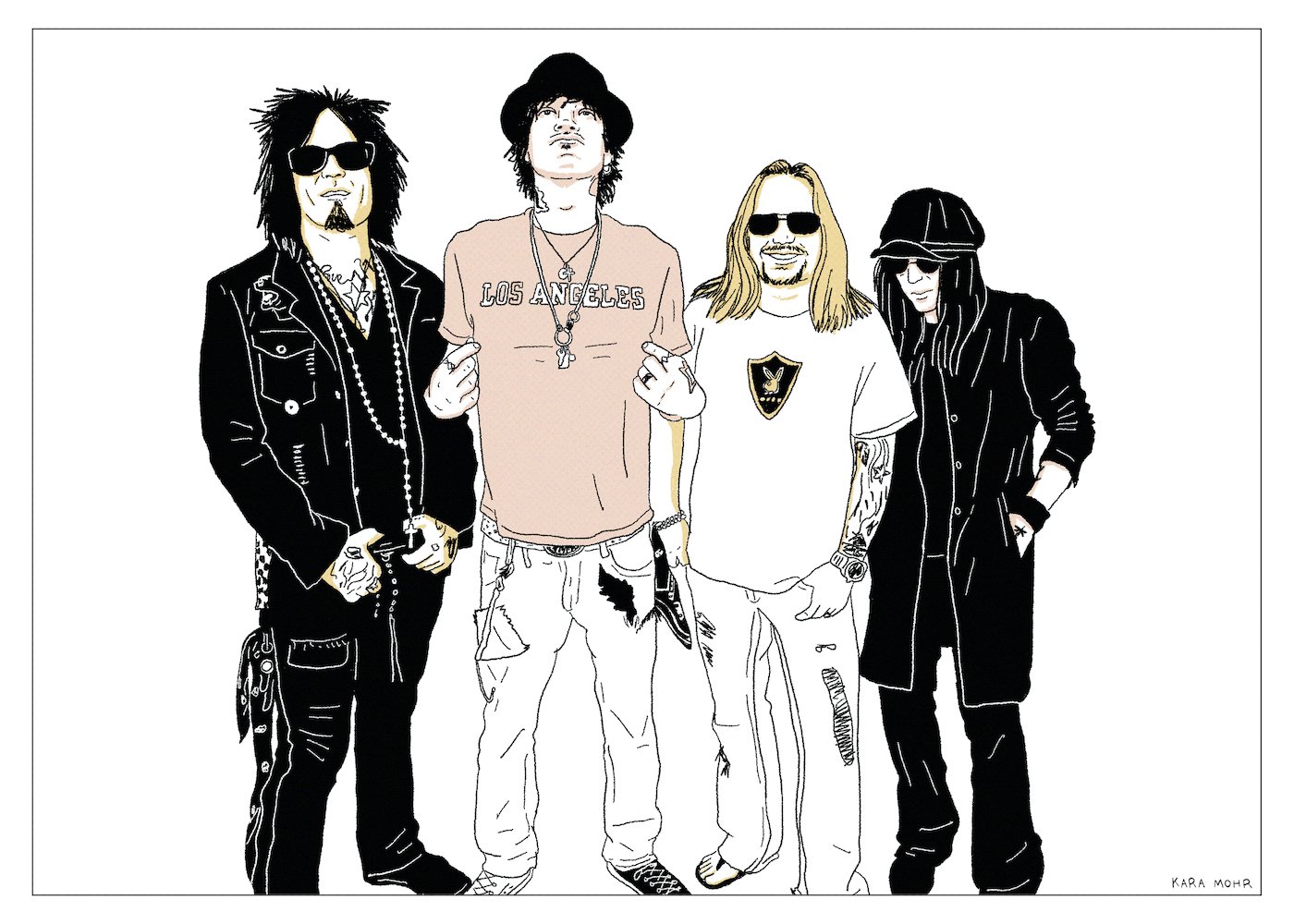
Mötley Crüe “Saints of Los Angeles”
Two bands. Both inspired by The New York Dolls. Both with silly haircuts. Both with bassists who died, though only one of whom stayed that way. Both famous for leaving destruction in their wake. Both accused of nihilism. Both the subjects of gossip, books, movies and films. One was born in 1975 and, for the most part, was done by 1978. The other formed in 1981 and, though they’ve said farewell numerous times, is still going to this day. One of these bands is thought of as high art. Scholarly tomes obsess over them. Meanwhile, the other band -- the generationally popular one -- is the butt of jokes. One is English and enthralls me. The other is Californian and confounds me. The more I considered the two bands, separated by critics and 5,437 miles, the more I had to confront the idea that their Sex Pistols might be our Mötley Crüe.
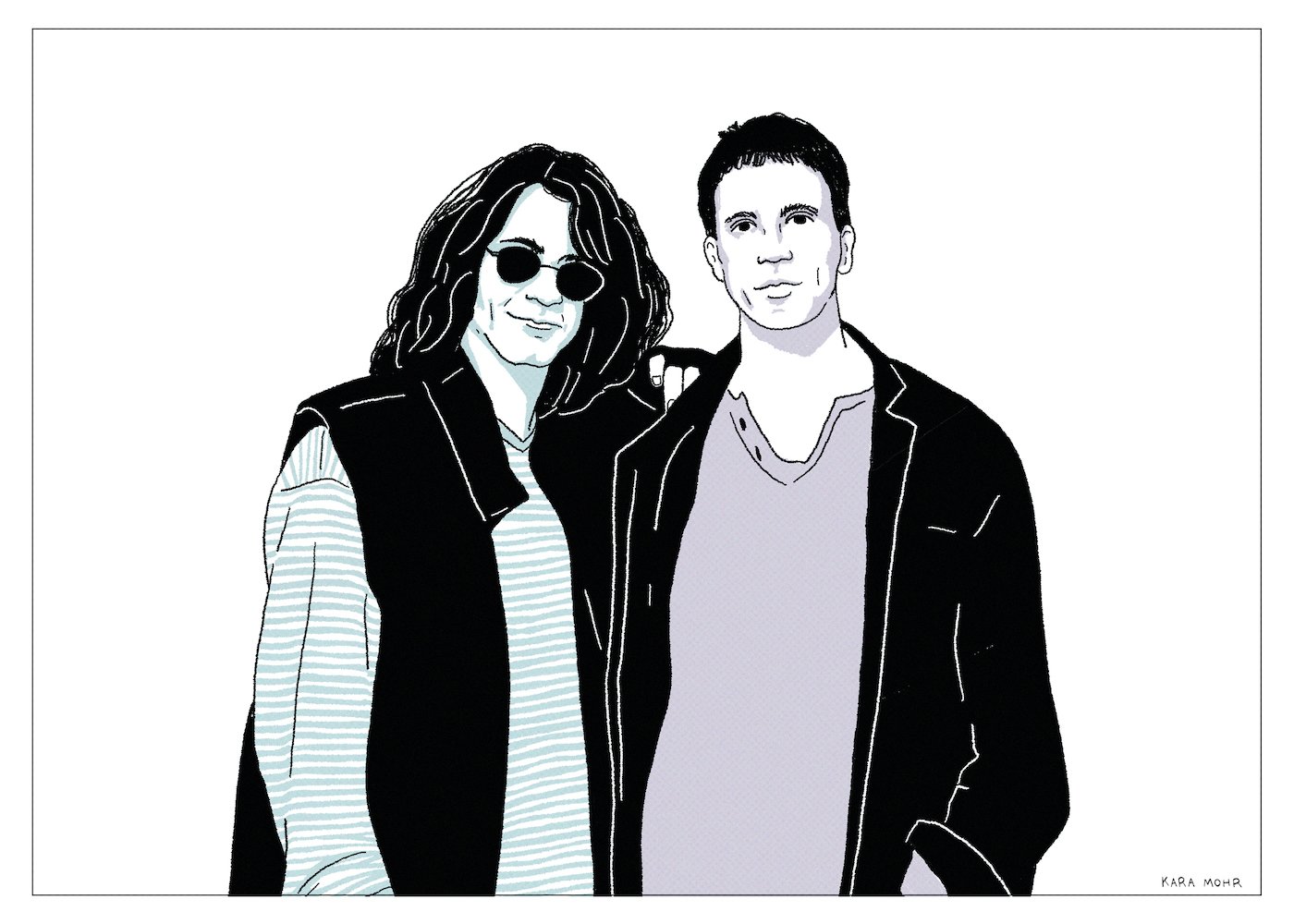
Van Halen “Van Halen III”
Gary Cherone never had a chance. He was the second step dad for a generation who didn’t want another step dad. Back in 1985, we were OK with divorce. It was a sign of the times. We rolled our eyes a bit at Sammy, but we also tolerated him and secretly liked him. We even understood the second divorce. Things happen. People grow up and cut their hair and take up golf. But the almost reunion with Dave and the ensuing PR stunts were not OK. And the ensuing addition of the guy from Extreme was so completely not OK that, by the end of 1996, the Van Nation was up in arms. To this day, “Van Halen III” ranks among the most reviled albums that, I suspect, very few people have actually heard.
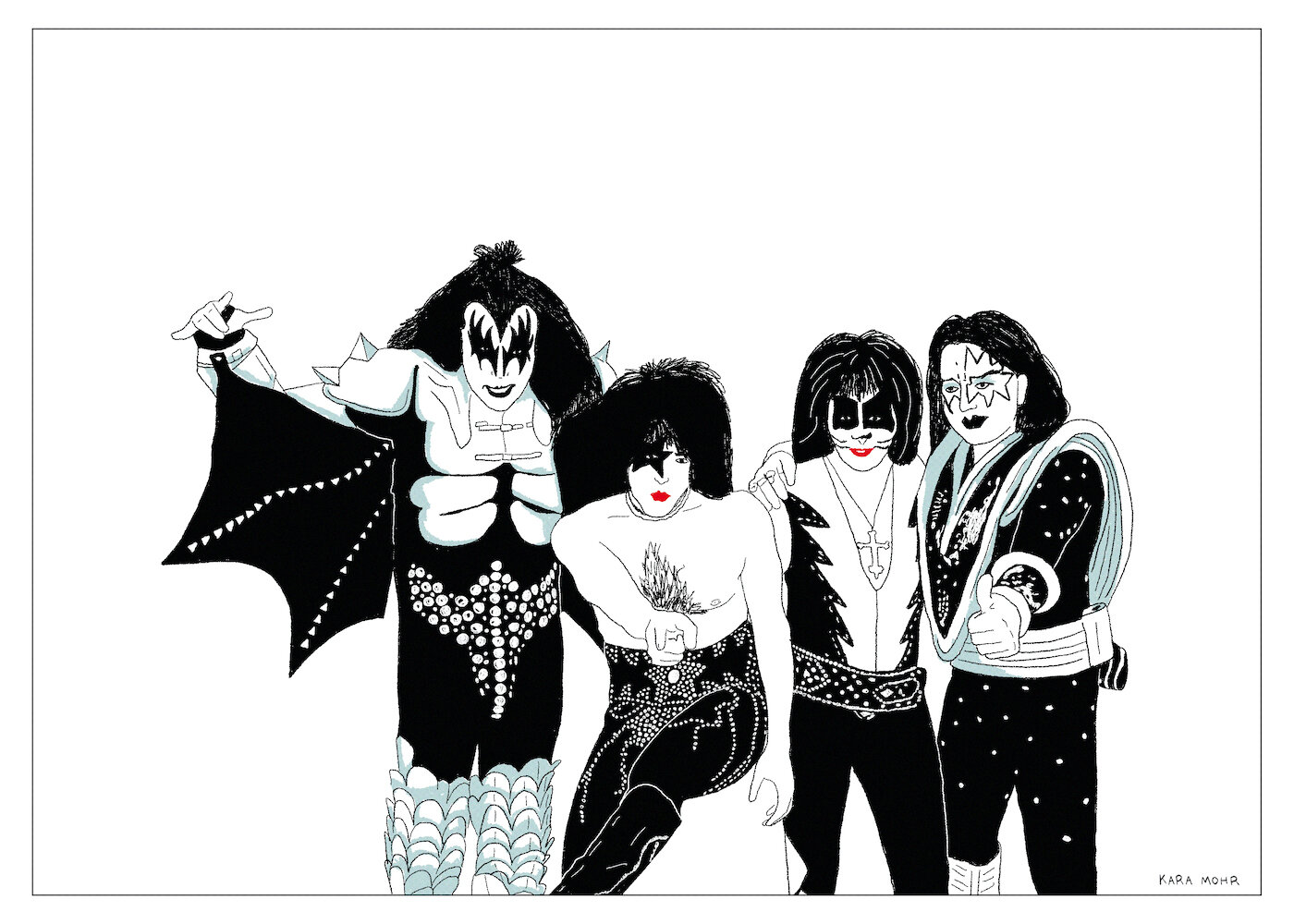
KISS “Psycho Circus”
As success stories go, Kiss’ is perhaps the most unconventional. They’ve had thirty Gold albums, more than any band before or since. A 1977 Gallup poll named them the most popular band in America. Gene Simmons is reportedly one of the twenty wealthiest living musicians. To me, however, they were barely a band. They were comic book ghouls. They were a pinball machine. They were the faces that embellished a demonic laundry bin that my mother one day deposited in my bedroom, without explanation. In 1998, having recently reunited, Kiss made it very clear: Their product was still heavy and basic. And their mission was still profit.
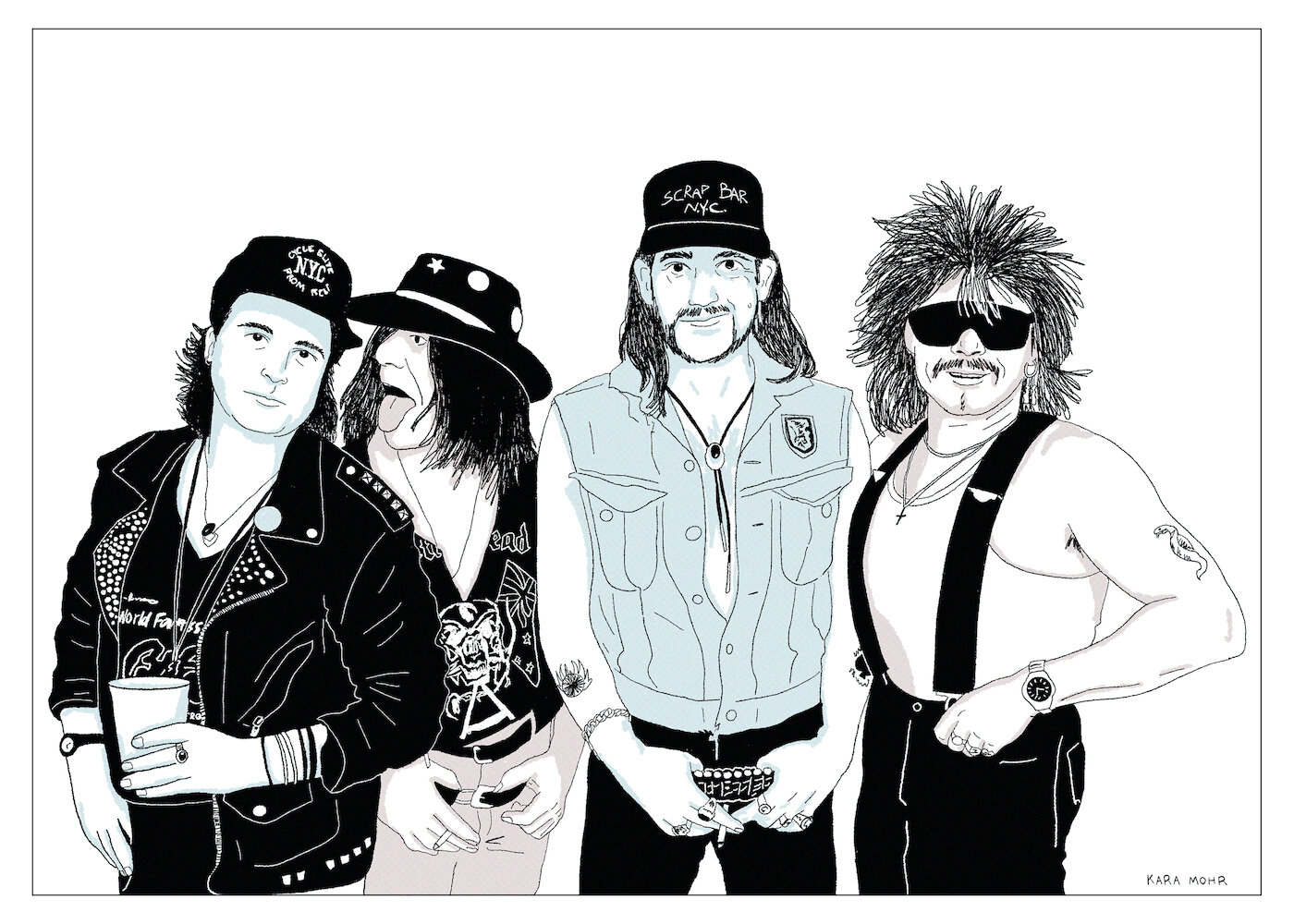
Motörhead “1916”
Like their snaggletoothed logo. Motörhead never really changed. Even when Lemmy was forty-five, transplanted to Los Angeles and caught between Hair Metal and Grunge. Even when Philthy Phil looked like a feral, drunk understudy from “Cats.” Even then, they could drop a dozen heat seeking missiles, armed with nuclear Stones and coked up Sabbath.
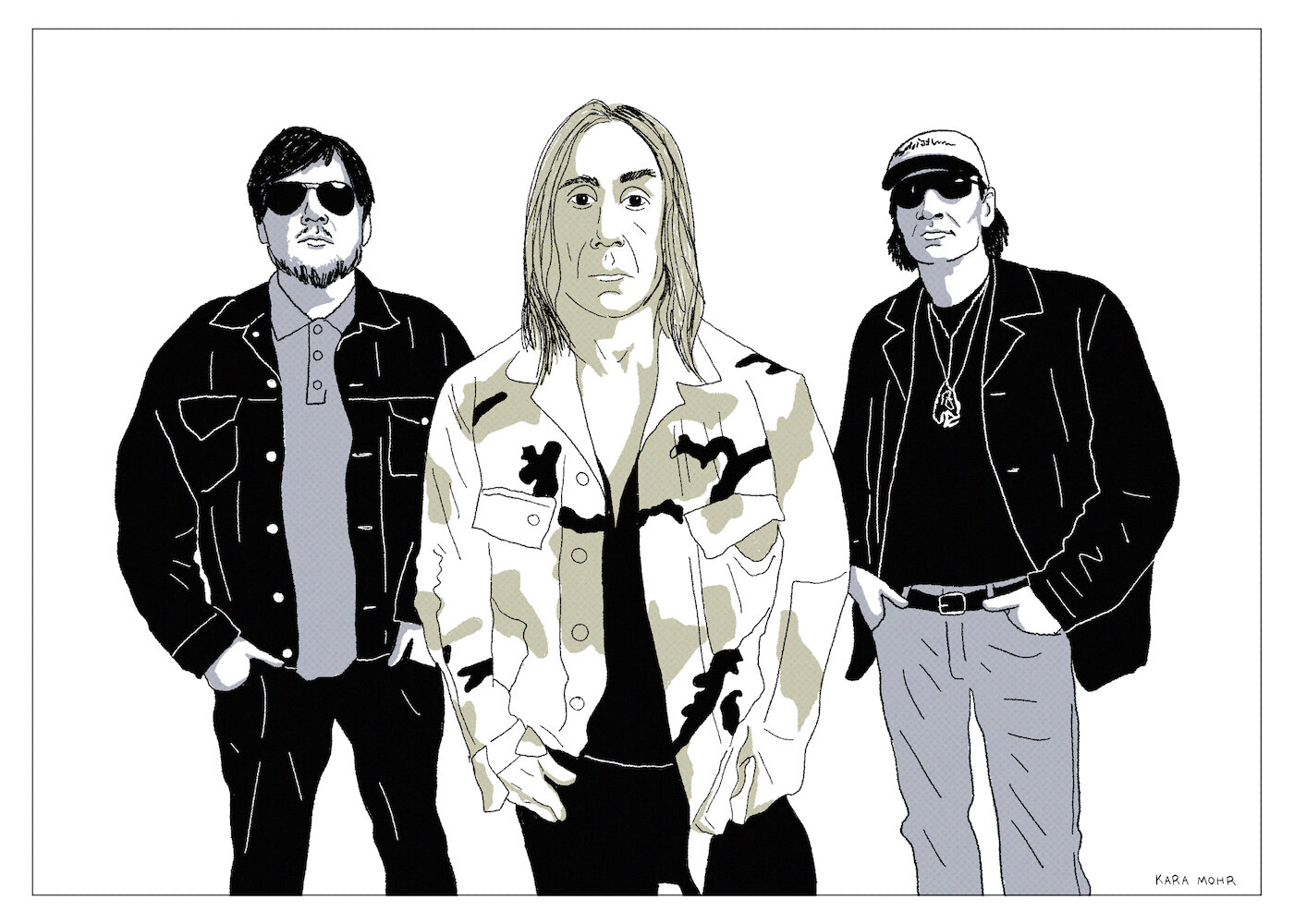
The Stooges “The Weirdness”
When The Beatles broke up, it ached of permanence. But, twenty years later, the bruises were forgotten. Every band that went away eventually came back. The Who. The Eagles. Even The Velvet Underground. Hippies turned Yuppies understood the motivation — if there was money to be made, the end was never really the end. But Generation X, with our Indie ideals, didn’t get the memo. When The Pixies reunited, we were pissed. And when The Stooges earnestly tried, but fell short, we were out for blood.
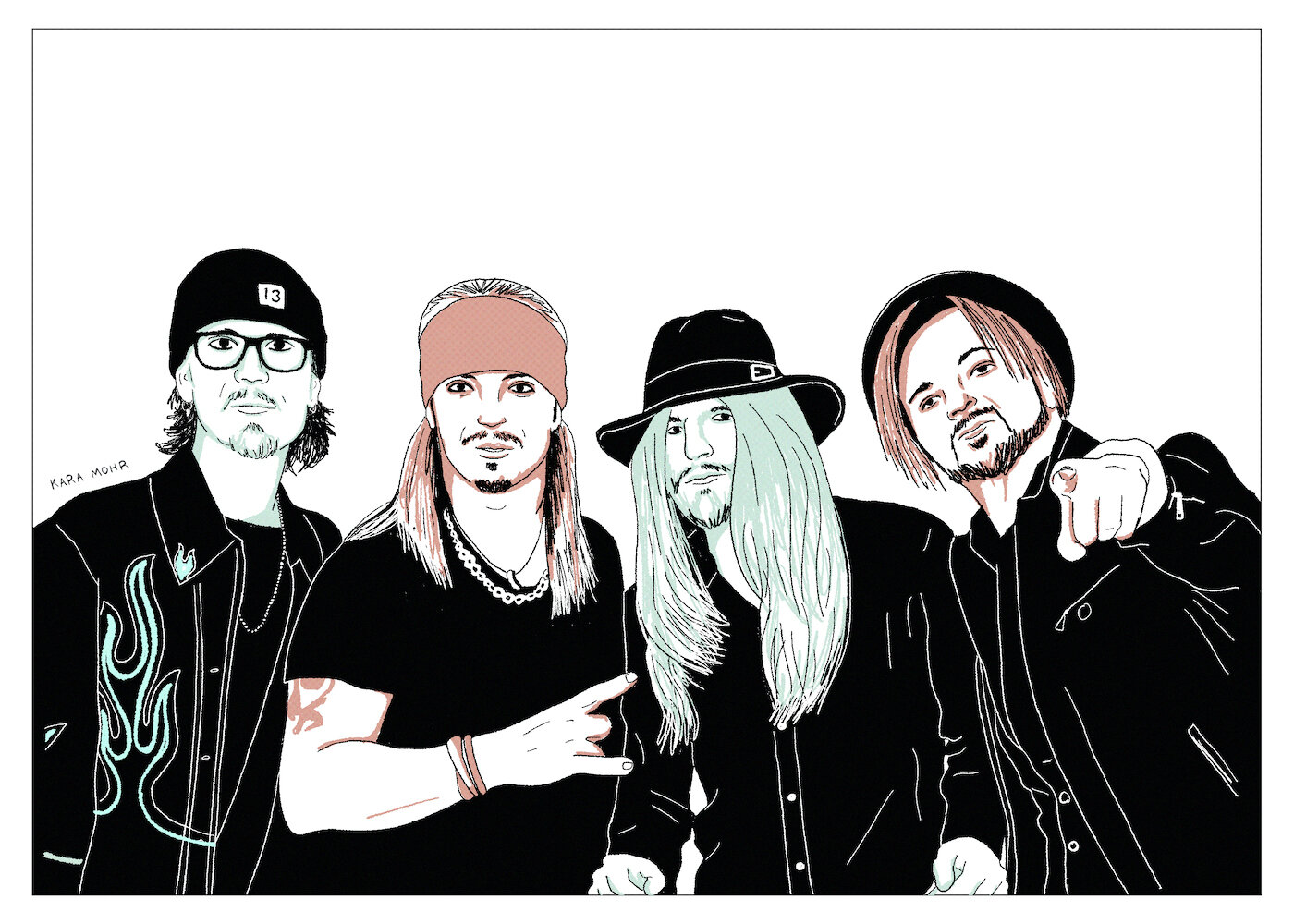
Poison “Hollyweird”
They were never as heavy as Motley Crüe or as menacing as GNR. But, at the end of the 80s, Poison was the prettiest Metal band we had. They triggered teenage hormones with big, dumb hits that were both hard and soft. Decades later, though, there was still something oddly enduring about Bret, C.C. and the guys. Was it reality TV? Was it the hair? Was it Trump country? Seriously. What was it?
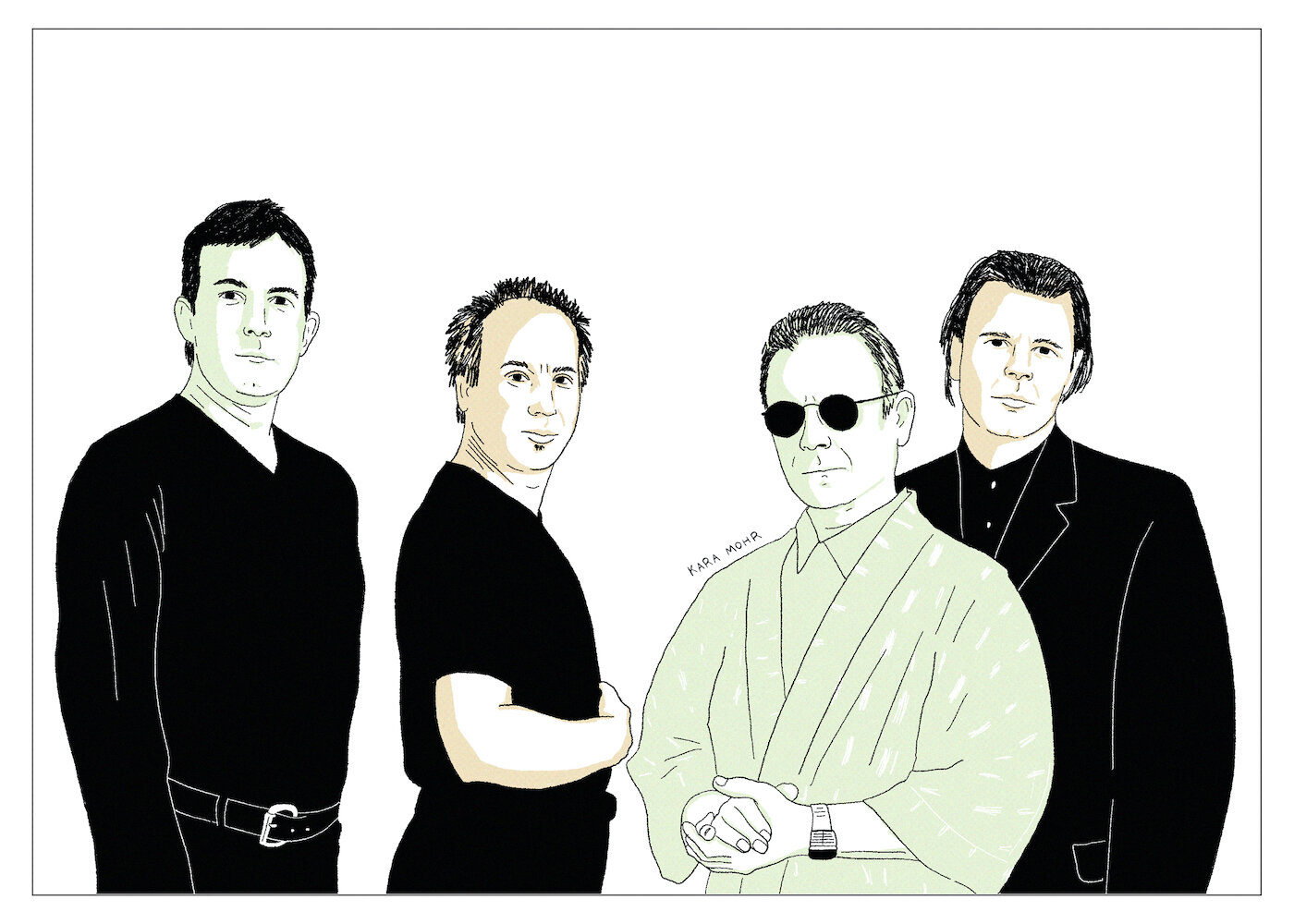
King Crimson “The Power to Believe”
Following their quirky, Belew-ish permutation in the 80s, King Crimson was reborn a decade later — harsher and, amazingly, more obtuse. As a casual listener, their final run from 1995 to 2003 sounds like music made for consideration rather than enjoyment. Nonetheless, I put my thinking cap on and tried my best with all of the albums from that period. And this arduous seeking led me to 2003’s “The Power to Believe,” Crimson’s final studio album (to date). If I was ever going to find meaning in King Crimson, surely it would be there — in Fripp’s closing statement. It simply had to be there.
